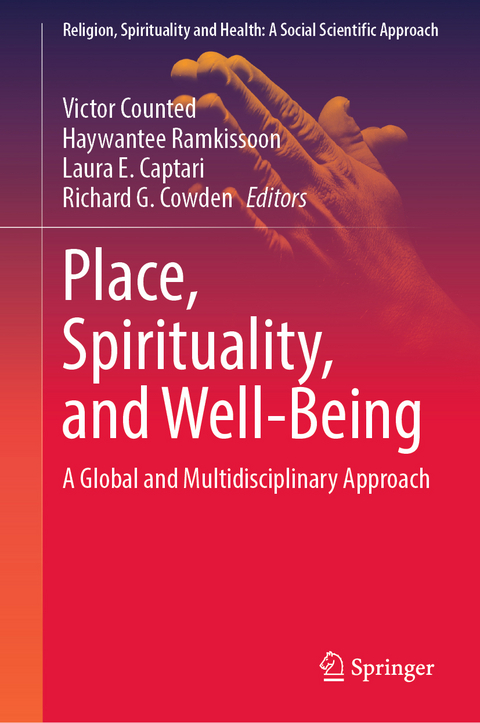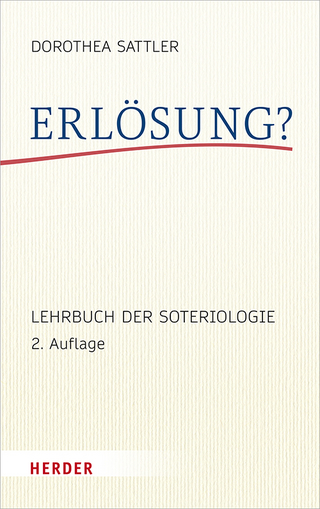
Place, Spirituality, and Well-Being
Springer International Publishing (Verlag)
978-3-031-39581-9 (ISBN)
lt;b>Victor Counted, Ph.D., is an Associate Professor in the School of Psychology and Counseling at Regent University and Faculty Affiliate of the Human Flourishing Program at Harvard University. He earned his PhD in Psychology at Western Sydney University and has a second PhD in Religion at the University of Groningen. He has published extensively on the science and practice of human flourishing and well-being, grounded in everyday psychosocial and psychospiritual processes, including how the interactions between people and their environments affect health and behavior.
Haywantee Ramkissoon, Ph.D., is a Professor at UniSA Business, University of South Australia, and at the College of Business, Law, and Social Sciences, University of Derby, UK, Johannesburg Business School, University of Johannesburg, South Africa and Centre for Innovation in Tourism, Taylor's University, Malaysia. She has also been in teaching and research roles at Monash Business School, Department of Marketing, Monash University, Australia and the Faculty of Biosciences, Fisheries and Economics, UiT, the Arctic University of Norway. Her expertise is in Sustainability Research, including Social and Environmental Psychology, Tourism, Marketing and Healthcare. She is recognised as one of the Clarivate Highly Cited Elite Group of Researchers for 2021 and 2022. She is also in Stanford list of World's top 2% most cited scientists for 2021 and 2022.
Laura E. Captari, Ph.D., is a Postdoctoral Fellow at The Danielsen Institute at Boston University. Her research explores the developmental and relational impacts of trauma, disaster, and loss, with attention to the intersections of culture, spirituality, and the mind-body connection as potential pathways to resilience and flourishing.
Richard G. Cowden, Ph.D., is a social-personality psychologist and Research Associate for the Human Flourishing Program at Harvard University. He is broadly interested in psychological, social, and religious/spiritual dynamics that shape adaptive functioning, personal growth, and well-being. Much of his research agenda focuses on topics related to adversity (e.g., suffering), character strengths (e.g., forgiveness), and religion/spirituality (e.g., religious/spiritual struggles), and their implications for health and well-being in diverse cultures and contexts. He has written numerous scholarly articles and book chapters that address various aspects of human flourishing in a wide range of populations, and recently co-authored Place and Post-Pandemic Flourishing: Disruption, Adjustment, and Healthy Behaviors (Springer, 2021).
Chapter 1: Toward a Global and Multidisciplinary Understanding of Place, Spirituality, and Well-Being.- PERSONAL ENGAGEMENTS: SPIRITUAL TIES TO PLACE AND WELL-BEING.- Chapter 2: Worship Space Attachment as a Potential Contributor to Spiritual Growth.- Chapter 3: Place, Spirituality, and Wellness in the East and the West: Exploring Psychological Mechanisms of the Legendary Gyanganj.- Chapter 4: Where Heaven Meets Earth: Theological Reflection on Landscape, Social Ecology, Biocentric Spirituality, and Well-Being.- Chapter 5: Racial Justice Protests Create Spaces of Hope and Healing: The Racialization of Space and Trauma in Contexts of Racial Tensions.- Chapter 6: House Churches and Place Attachment: A Case Study with Iranian Christians in Scotland.- Chapter 7: Architecture, Time, and Well-Being: Toward Transcendence.- SOCIAL RESILIENCE: SPIRITUALITY AND WELL-BEING AMID ADVERSITY.- Chapter 8: Embodied Spirituality and Health Amidst Place Confinement and Disruptions During the COVID-19 Pandemic: Critical Analysis of the Literature and Development of a Conceptual Framework.- Chapter 10: Displacement, Fragmentation, and Well-Being of Ghanaian Church Leaders and Older Adult Christians During a Global Pandemic.- Chapter 11: Religious Communities and Well-Being During the COVID-19 Pandemic: A Practical Theological Consideration.- Chapter 12: The Early Church and Community Resilience in the Late Antique Levant: An Archaeological Perspective.- CULTURAL CONNECTIONS: SACRED SPACES, TOURISM, AND WELL-BEING.- Chapter 13: Managing the Sacred: Online Narratives of Well-Being in a Japanese Heritage Context.- Chapter 14: Clans and Spiritual Space: A Case Study of Guandi Temple in an Ancient Hakka Town in South China.- Chapter 15: Religious Tourism: Exploring Experiences of Spirituality, Place Attachment, and Well-Being in Zimbabwe.- Chapter 16: Healing Systems of Well-being and People-Place Interactions: Complexity, Context, and Connections.
| Erscheinungsdatum | 04.10.2023 |
|---|---|
| Reihe/Serie | Religion, Spirituality and Health: A Social Scientific Approach |
| Zusatzinfo | XIX, 288 p. 24 illus., 11 illus. in color. |
| Verlagsort | Cham |
| Sprache | englisch |
| Maße | 155 x 235 mm |
| Gewicht | 583 g |
| Themenwelt | Geisteswissenschaften ► Religion / Theologie ► Christentum |
| Geisteswissenschaften ► Religion / Theologie ► Weitere Religionen | |
| Schlagworte | environmental psychology • green lifestyle and spirituality • health and home • home and spirituality • Place and Religion • Psychology and religion • Religion and urban environment • Sacred Places • Spirituality and Health • tourism and spirituality • urban geography and spirituality |
| ISBN-10 | 3-031-39581-6 / 3031395816 |
| ISBN-13 | 978-3-031-39581-9 / 9783031395819 |
| Zustand | Neuware |
| Haben Sie eine Frage zum Produkt? |
aus dem Bereich


